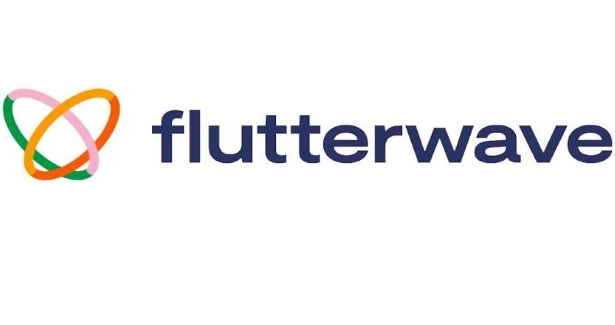E-Financial
Analysts See Surge of Blockchain Tech Market

Blockchain technology’s burgeoning market is set to exceed the billion-dollar mark, with a new report crediting rising demand for immutability of information on networks.

The Blockchain Technology Market report by Future Market Insights says the capability of blockchain technology to accommodate immutability of data will motivate end-users to accelerate adoption over the forecast period of 2020 to 2030.
As a result, it says, by the end of the forecast period, the global blockchain technology market value is estimated to grow more than 35 times its value in 2019.
Future Market Insights explains that blockchain technology is constituted of ordered records distributed in a block structure. Every data block contains a hash of unique identifiers like digital fingerprint, time-stamped batches of transactions, and a hash of the previous block.
In this design, it says, each block is connected in chronological order. “The interconnected blocks constitute a blockchain. Practically, it is not possible to change or modify any block in the middle of the chain. This is because all the blocks located after the modified block are required to be modified at the same instant,” Future Market Insights states.
The company projects that the blockchain technology market will exceed the $1.5 billion mark by the end of 2020.
“The global market is projected to offer an incremental opportunity worth more than $55 billion in the forecast period of 2020 to 2030,” reads the report.
It also says blockchain-based supply chain management is the primary use case in the global market, followed by decentralised finance, while large enterprises will continue being the primary contributors to the growth of the blockchain technology market on a global scale.
Further, the report cites the banking, financial services and insurance (BFSI) industry as the primary contributor to market growth, with transportation and logistics industries following suit.
The report says blockchain will remain important for the BFSI industry.
“Blockchain technology providers are recording considerable procurement from the demand side for supply chain management applications. Vendors are striving to target customers requiring decentralised finance in order to open up an additional stream of income.”
A decentralised offering, especially in the banking sector, can reduce the chances of fraud by eliminating intermediaries, says Future Market Insights.
“Blockchain effectively removes vulnerability to cyber attacks, breach and theft, making it a safer choice.
“Blockchain infrastructure set-up demands inherent complexities. Since the technology has not achieved commercialisation on a global level, the demand for middleware solutions for integration, analytics and correlation, along with governance and security, is likely to rise among technology procurers,” says the report.
Assessing the competition landscape of the blockchain technology market, the report says as the technology is lagging behind in global diffusion, blockchain technology start-ups are striving to develop long-term partnerships with blockchain technology integrators.
“The move comes in order to ensure steady revenue generation during the forecast period. Start-ups are partnering up with artificial intelligence-based technology developers in order to market comprehensive solutions for decentralised financial applications,” it says.
“Market leaders such as Bitfury Group are focusing on expanding their blockchain portfolio to include hardware solutions that enable end-users to transfer or share assets swiftly and securely over a blockchain-based network.”
E-Financial
Flutterwave Rises from Lagos Startup to Africa’s Fintech Powerhouse

Flutterwave has transformed from a modest Lagos venture into one of Africa’s most valuable fintech firms, processing billions in transactions yearly across 30+ countries and 150+ currencies.

Flutterwave
Founded in 2016 by Iyinoluwa Aboyeji, Olugbenga “GB” Agboola, and Adeleke Adekoya, it tackled Africa’s fragmented payments—siloed banks, mobile money gaps, and unreliable cross-border flows—with a unified API for seamless collections, payouts, and settlements.
Founding Vision
The trio spotted the pain: Aboyeji’s Andela faced border delays; Agboola drew from PayPal/Google; Adekoya handled compliance. Early wins included Uber Nigeria payouts from a Lekki co-working space, proving scalability amid lean ops.
Growth Milestones
2017–2020: $10M seed/Series A fueled West Africa push; Agboola took CEO helm post-Aboyeji; COVID boosted e-commerce volumes.
2021–2022: Unicorn at $1B+ (Series C, $170M); $3B+ valuation (Series D, $250M); partnerships with Microsoft, Uber; Send App for US diaspora.
2025–2026: Profitability focus yields better margins; 34 US licenses; Mono acquisition ($25–40M) bolsters open banking.
Challenges Overcome
Regulatory hurdles hit: Kenya 2022 freeze (cleared); Nigeria fraud claims (resolved, controls enhanced); culture probes led to reforms with ex-Mastercard/Stripe hires. These underscore multi-jurisdiction risks like FX curbs and cyber threats.
Nigeria’s Fintech Role
Flutterwave anchors alongside Paystack (Stripe-owned), Moniepoint, amid CBN cash curbs and AfCFTA trade boosts. Dual HQ in Lagos/SF eyes IPO post-profitability, cementing it as Africa’s payments backbone.
E-Financial
CIBN Pledges Full Support to New ACAMB Leadership, Backs Ambitious Roadmap

Chartered Institute of Bankers of Nigeria (CIBN) has pledged its full support to the Association of Corporate and Marketing Professionals in Banks (ACAMB) following a high-level strategic meeting between the leadership of both bodies.

New ACAMB Leadership
The high profile meeting, which took place on Tuesday at the CIBN Building, Lagos, served as a formal introduction of the new ACAMB Executive Committee to the CIBN leadership and marked the beginning of a renewed collaborative alliance.
Leading a delegation of the newly inaugurated ACAMB EXCO and Board of Trustees, the President, Jide Sipe, described the visit as a crucial first step in his tenure, aimed at contributing significantly in giving flight to his vision and that of ACAMB.”
“When we assumed office, one of the first things we agreed on was the need to visit key stakeholders”
“However, before reaching out more broadly, we felt it was important to begin with our primary constituency and core stakeholders. We want them to understand the direction we are taking and to support the work we are doing, so that ACAMB can achieve greater success than it has in the past”
“We couldn’t have properly started our tenure without this very important meeting with the CIBN,” Sipe stated
Sipe introduced the newly constituted ACAMB Exco, which includes, the 2nd Vice President, Morolake Phillip-Ladipo; General Secretary, Olugbenga Owootomo, Assistant General Secretary, Ademola Adeshola; Publicity Secretary, Abiodun Coker, and Executive Secretary, Fadekemi Ajakaiye
During his address, Sipe unveiled an ambitious roadmap for the association, highlighting a new direction focused on youth engagement, professional development, and industry advocacy.
Responding, the CIBN President, Professor Pius Deji Olanrewaju, who warmly received the ACAMB team, commended their forward-thinking vision as he noted that, the association would be focusing on critical areas such as reputational management, sustainable corporate practices, and governance reforms
Olarenwaju also commended ACAMB’s collaboration with CIBN in information management, saying it had raised standards across Nigeria’s banking sector.
“ACAMB’s support has given CIBN and the banking sector brand equity,” he said, praising the association’s record in reputation management.
He recalled ACAMB’s role in addressing crises within the sector, describing the partnership as strategic and beneficial.
He further pledged support for ACAMB’s 30th anniversary in September 2026, its AGM, and other programmes, including fundraising initiatives.
Olarenwaju also promised backing for ACAMB’s capability development and undergraduate mentorship schemes.
“I want to assure you that everything you have presented today has been clearly noted and will be acted upon”
“We are fully committed to working closely with you so as to translate these discussions and vision into measurable progress. Our shared goal is to strengthen the sector, protect its reputation, and enhance its public image in a meaningful and lasting way”
“This meeting discussed various initiatives and reforms crucial for the future of our industry, including the need for continuous training and adaptation to new programs,” Prof. Olanrewaju said.
The meeting concluded on a high note, with both parties expressing gratitude and a firm commitment to deepening their collaboration for the advancement of the banking industry in Nigeria.
E-Financial
Kuda Bank Teams Up with Lovers & Frnds for Inclusive Valentine’s R&B Bash

Kuda Microfinance Bank partnered with Lovers & Frnds for a Valentine’s edition event on Sunday, February 15, at Space Hub Lekki, Lagos, redefining celebrations around love, friendship, and social connections beyond romance.

Kuda Bank
The R&B-themed gathering drew couples, friend groups, and solo attendees with music sets from DJs like TGarbs, games, gift exchanges, and colour-coded tags—red for relationships, yellow for mingling singles, orange for non-minglers—to spark easy interactions.
Kuda activated a branded photo booth, merchandise giveaways, prize activities, and complimentary drinks for Premium loyalty tier customers, while vendors used Kuda Business POS terminals for seamless cashless payments.
Senior Brand Manager Emmanuel Femi-Adejobi said: “We partner with experiences matching our customers’ lifestyles in music and entertainment, creating spaces they genuinely connect with—we’ll keep supporting how they live and celebrate.”

 E-Business2 days ago
E-Business2 days agoAfDB, UNDP Launch $10Bn AI Initiative for Africa

 News3 days ago
News3 days agoNITDA Urges Stronger State Partnerships as Key to Digital Economy Goals @ South-South Stakeholders Forum

 Telecom3 days ago
Telecom3 days agoGSMA Launches Innovation Fund to Accelerate Green Transition Through Mobile Technology

 Telecom2 days ago
Telecom2 days agoGrey Expands Cross-Border Banking with USD Accounts, USDC Support

 Telecom3 days ago
Telecom3 days agoProf. Adeyanju is Strengthening Nigeria’s Digital Backbone for a Connected Future in Two Years of Purposeful Leadership

 E-Business3 days ago
E-Business3 days agoFirm Identifies RenEngine Loader Distributed Through Pirated Games and Software

 E-Financial3 days ago
E-Financial3 days agoFidelity Bank Launches HerFidelity Apprenticeship Programme 2.0 to Boost Women Entrepreneurship

 E-Financial3 days ago
E-Financial3 days agoTAJBank Secures A1 Ratings from Agusto, Datapro

















